When Georgia Shrimpers Hauled Cuban Refugees
How a standoff with Castro knocked a hole in the shrimping village of Thunderbolt.

For the small commercial fishing operations that harvest wild-caught shrimp off America’s coasts, survival depends on circumstances beyond human control: environmental factors, political regulations, hurricanes, brutal winters, and other acts of God. In a bad season, any opportunity for a boat owner to supplement his income could be the difference between covering his expenses—boat payments, maintenance, crew, fuel—and losing his shirt. This is how, in the spring of 1980, the small shrimping village of Thunderbolt, Georgia, got tangled up in a Cold War standoff.
For nearly all of the 20th century, Thunderbolt was the epicenter of American commercial shrimping. Its boat docks, packing houses, and canneries produced fresh shrimp, canned shrimp, the world’s first pan-ready, frozen battered shrimp … Shrimp was so central to the local economy that in 1980, the Miami Herald reported, “When shrimp don’t fill up the nets of the big boats that tie up here, many in this town of 5,000 don’t eat.”
That April, the shrimp season was off to a dismal start. Shrimp prices were down 15 percent, more competing trawlers were on the water, and fewer shrimp were coming in.
Meanwhile, in Cuba, Fidel Castro had just granted dissidents a brief window of freedom. Anyone who didn’t support his Communist regime was permitted to leave, under two conditions: that they exit via the harbor at Mariel, 25 miles west from Havana, and that someone be there to pick them up. Within hours of that decree, a mass exodus had begun. In the shrimping community, word spread quickly that Cuban-American families would pay as much as $1,000 a head to boat captains who would transport their loved ones from Mariel.
In the following weeks, more than 100,000 emigrants poured out of Cuba through the strictly policed floodgates of Mariel Harbor. Upon reaching America, they became known as Marielitos; their egression, the Mariel Boatlift. The boats that arrived to retrieve them—a scrappy, ad-hoc fleet of privately chartered American fishing boats, lobster boats, and shrimping trawlers of varying sizes and degrees of seaworthiness—earned the name the “Freedom Flotilla.”
Among the captains, crew, and boat owners of this fleet were hundreds of Thunderbolt residents, who set a course for Mariel at greater risk than they could have foreseen.
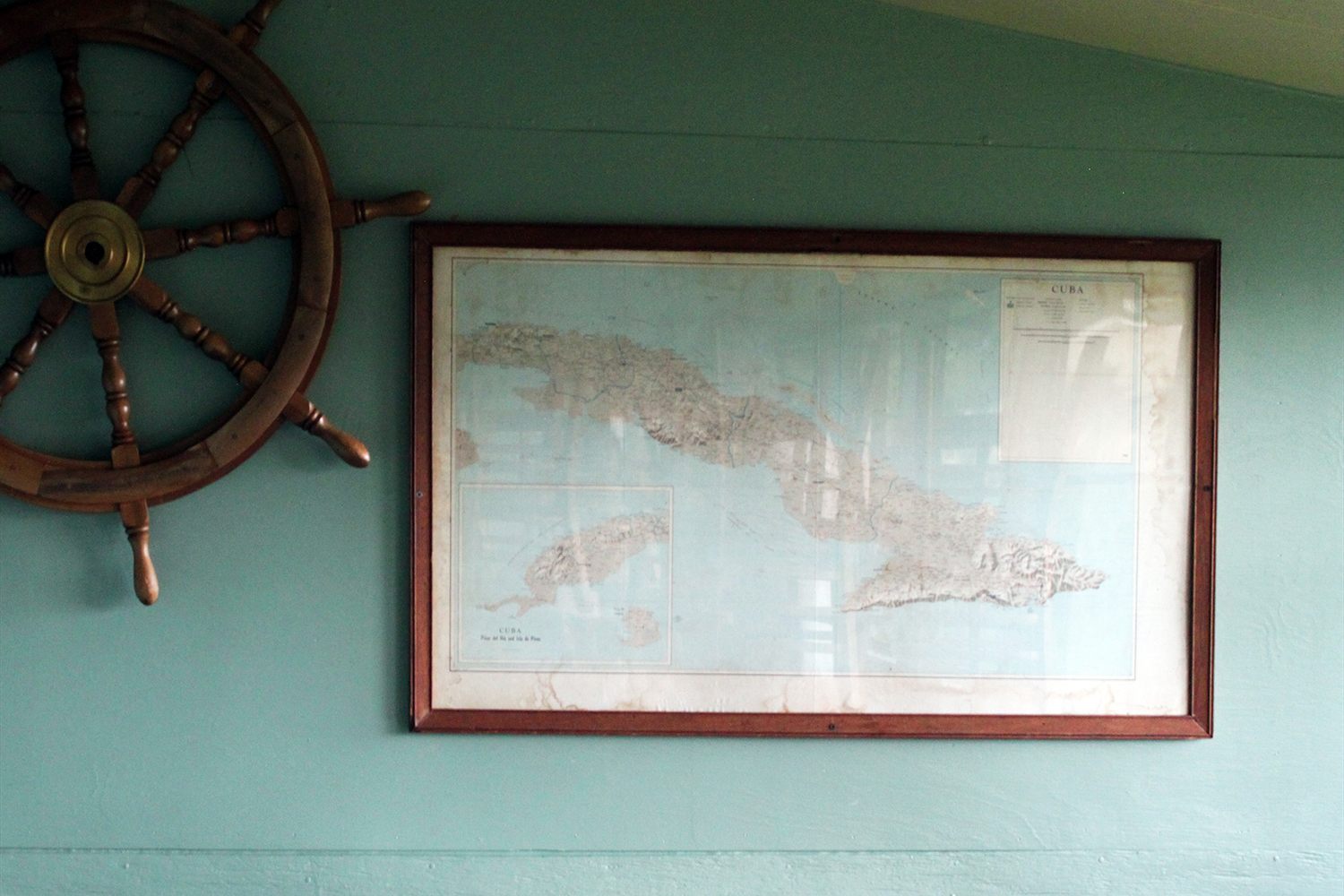
In early May of 1980, on the docks in Key West, volunteers greeted and comforted the Marielitos. They provided medical attention, offered clothing and hot meals, and after helping them with their immigration paperwork, shared cups of Coca-Cola—a treat Cubans had not enjoyed since the start of the embargo in 1962. The warm welcome was in line with President Jimmy Carter’s May 5 pronouncement that America would receive Cuban refugees with “an open heart and open arms.” Georgia shrimpers were ready to take Carter’s words as a call to action.
“The shrimpers were collecting Cubans and bringing them back,” says Glenda “Dink” Weed. Weed’s husband, Joseph Weed Jr., was a shrimper in nearby Richmond Hill. He passed away seven years ago.
Joe Weed, like many of his cohort, was drawn by the promise of financial gain, compounded by goodwill and patriotism. Many Flotilla captains said they thought they were doing a service for the good people of Cuba—they just weren’t able to do it for free.
For others, the boatlift was strictly business: Michael Cesaroni Jr., a commercial shrimp kingpin and then-mayor of Thunderbolt, sent four of his five boats to Cuba, telling the Savannah Morning News, “My boats are down there because it’s a dollar a gallon for fuel, the price of shrimp is down $1.25 per pound, there are no shrimp to be caught, and the average boat payment is $4,000 to $5,000 per month. What would you do?”
Whatever their motives, the owners of Thunderbolt’s Daddy’s Lady, the Hal & Drew, the Stacy Lynn, the Nelson Boys, and dozens more were all in the same boat financially. “Georgia Shrimpers Haul Cubans Now,” the Associated Press reported on May 10. New boats were dispatched daily.
But complications quickly arose.

When Joe Weed arrived at Mariel carrying his crew and the Cuban-Americans who had enlisted him, the Cuban customs checkpoint was bedlam. Unable to return until authorities released all the Marielitos they’d come for, they lived on Weed’s boat, the Captain Jeffrey, for a month or maybe more. Surrounding them were other boats doing the same: burning fuel, trading BIC lighters and other coveted American goods for drinking water and food (or paying absurd prices for it), and waiting. At home, Dink Weed struggled to cover bills for her and the children on her nurse’s salary, while boat payments piled up. She had no way to reach Joe and no news of his condition.
While Weed was stranded at Mariel, a tug-of-war developed between Castro and Carter. Due to political pressure, by May 14, President Carter had reversed his stance on welcoming the Marielitos, abruptly declaring missions like Weed’s illegal. Castro, who wanted dissidents out, had emptied Cuba’s jails and mental hospitals onto Flotilla boats’ decks. As they set off for Key West, American vessels were chaotic and overflowing. Not all of them made it back.
This forever left a mark on America’s immigration debate. While the Boatlift increased the Miami workforce by more than seven percent, crime rose too, inspiring political arguments against unrestricted immigration that continue today. Many newspaper articles, comics, and films portrayed all Marielitos as heathens, druglords, and murderers: Think Tony Montana in Scarface.
Before Joe Weed could depart Mariel, Cuban police forced him to take on board, in addition to his expected manifest of 50, 135 additional passengers for an already harrowing 87-mile voyage back across the Florida Straits. By the time he reached Key West, Florida had declared a state of emergency and, under Carter’s new instruction, U.S. Customs was taking legal action against Flotilla boat owners. Refugees were processed at massive, makeshift immigration centers, and the Captain Jeffrey was impounded.
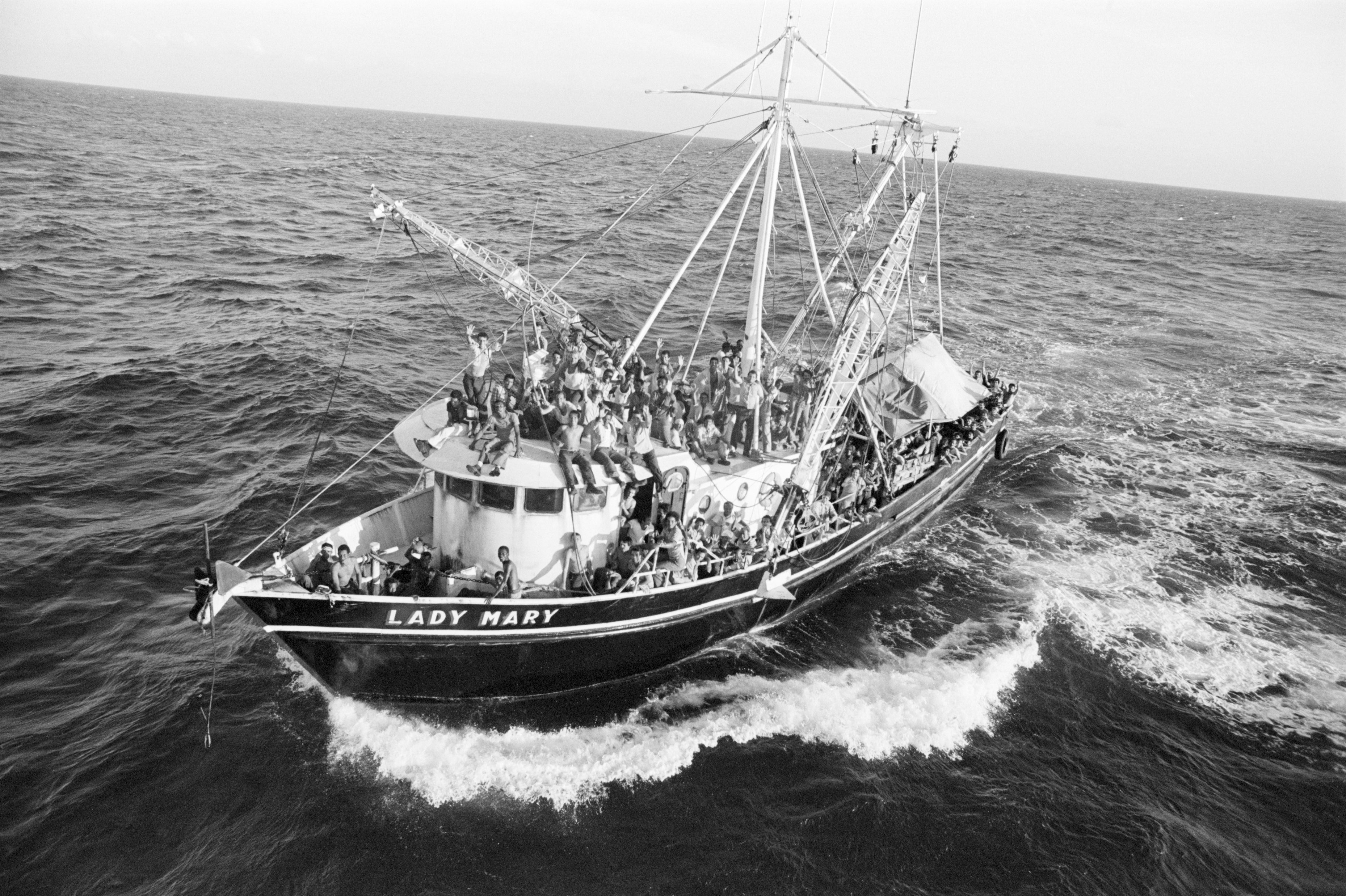
Hundreds of Flotilla boats were seized by the feds upon arrival back in Key West. Dozens of those were from Thunderbolt. As they gradually made it home to Georgia, their owners faced penalties of up to $1,000 per refugee.
It was a dramatic change in fortune: The Hal & Drew crew had been hailed as heroes for bringing nearly 400 refugees to Key West along with 20 more on a smaller boat they had rescued along the way. Later, they were fined hundreds of thousands of dollars. For his efforts, Joe Weed owed the government $185,000. Cesaroni’s fines totaled around $600,000—more than twice the purchase price of a boat.
Joe Weed, luckily, had family ties to the White House. Dink’s aunt had worked on the Carter campaign and gave the Weeds a direct phone number for First Lady Rossalyn Carter. Thanks to help from the Carter administration, Dink recalls, the Captain Jeffrey was home in only a month or two. Then, in a lawsuit filed by 19 shrimpers against the federal government for damages, Weed was able to get his fines relieved. He worked out of the Bryan Fishermans Co-Op for another decade before retiring from shrimping for health reasons.
Others were on a longer, muddier road to recovery. Many shrimpers lost one if not two seasons to litigation and paperwork. More than a million dollars in collective fines weighed on the town’s economy. Boat and dock workers were laid off, while others were stigmatized for their part in the Flotilla. “Customers are calling up saying they won’t buy shrimp from us unless we fumigate all the boats which were carrying Cubans,” one Thunderboltian told the Philadelphia Inquirer.
The aftermath set some of the hardest hit on a different course. In the following years, prominent Thunderbolt shrimpers had their boats impounded for smuggling marijuana from South America. A drug bust in Thunderbolt led to the indictment of dozens of local shrimpers and residents, including the police chief. Cesaroni and others hung up their nets entirely.
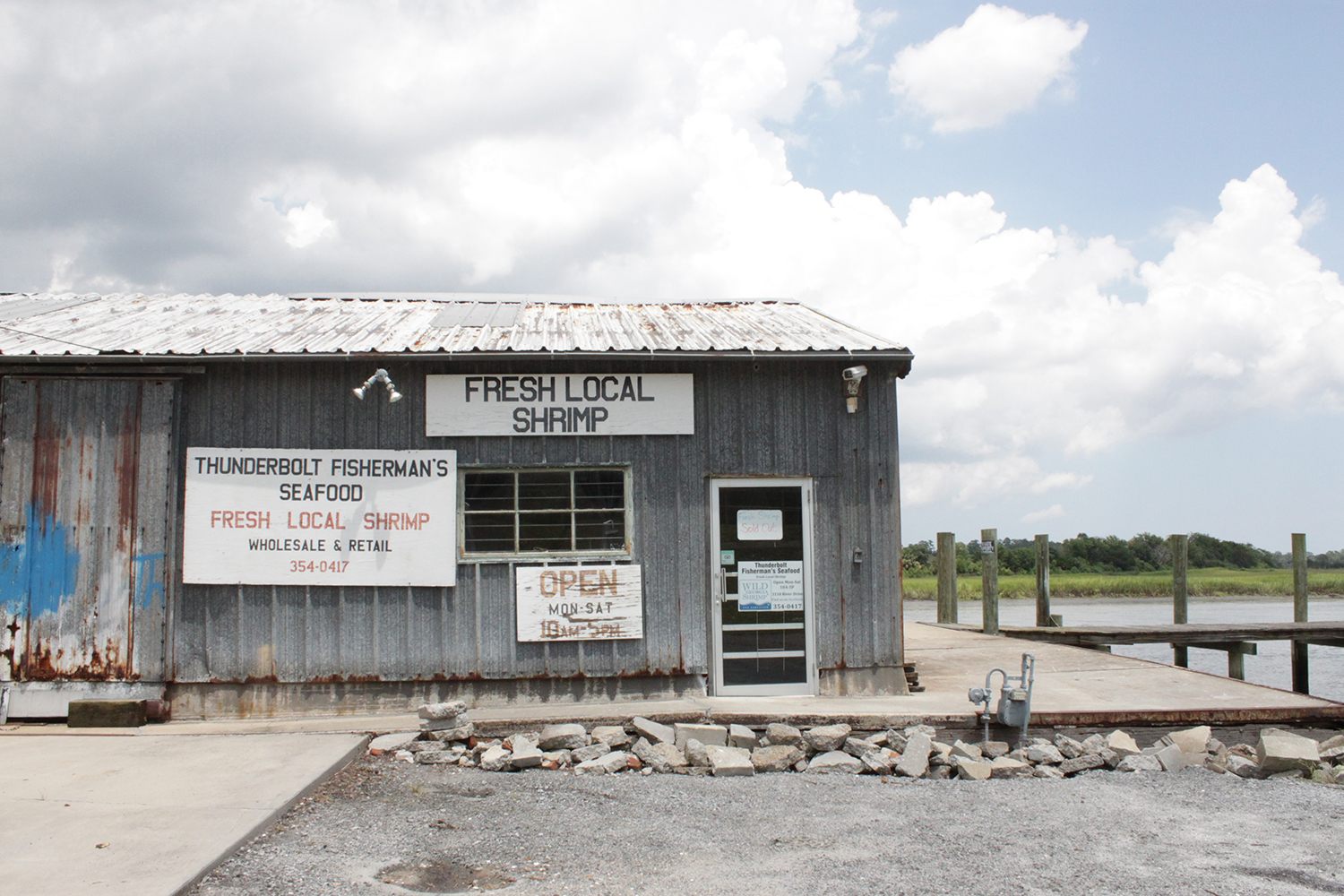
The 1980s were a time of recovery for the shrimping industry, but other challenges—from the historic snowstorm of 1989 to the arrival of cheaper, farm-raised shrimp imports from Asia—increasingly ate at the shrimpers’ narrow profit margins.
Earlier this year, after an especially bleak start to the season, the docks in Thunderbolt were all but empty. Shrimpers variously blamed the invasive Asian Tiger Shrimp, the pervasive plague of Black Gill, two hurricanes last fall, and an unexpected freeze this winter. It was one abominable season in an overall downward trend: Statewide, shrimping licenses issued have dropped by 85 percent since the Mariel Boatlift; last year in Chatham County, there were just 32.
For 125,000 Cubans, the shrimping season of 1980 led to a new start. For shrimpers, it marked the beginning of the end. As one Thunderbolt shrimper said to the Tallahassee Democrat, “I tell you, this thing has really knocked a hole in this town. We’re small people, but we’re the backbone of this shrimping industry in Georgia.”
Gastro Obscura covers the world’s most wondrous food and drink.
Sign up for our regular newsletter.




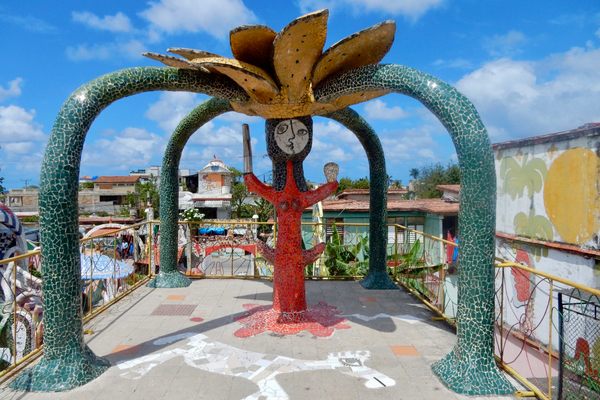



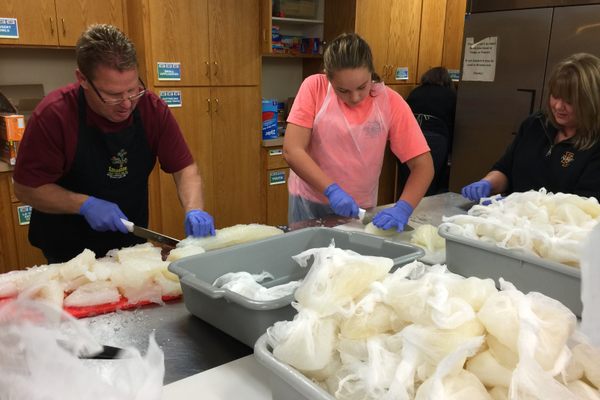

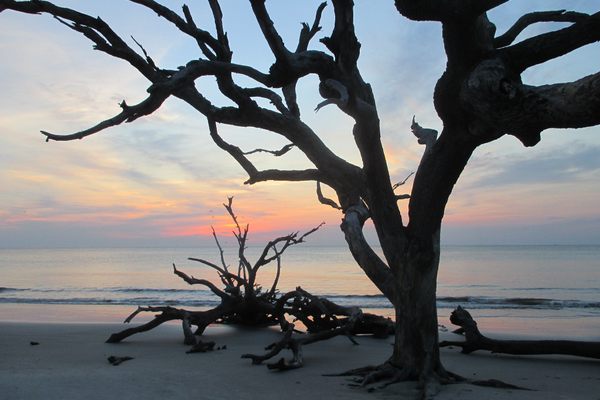
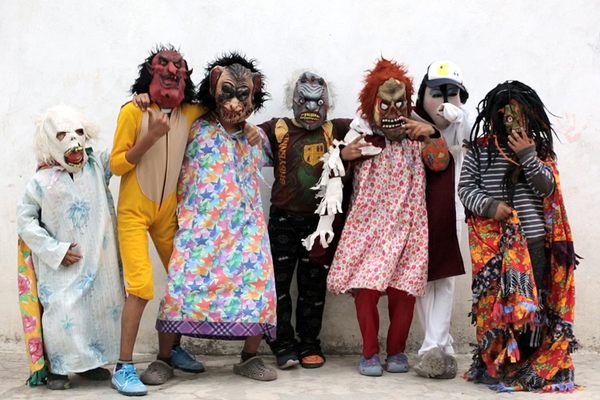





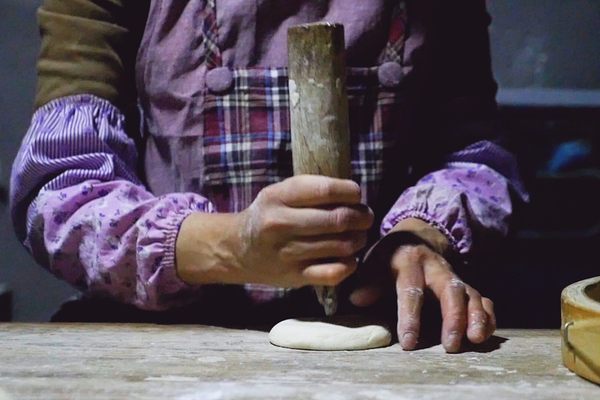
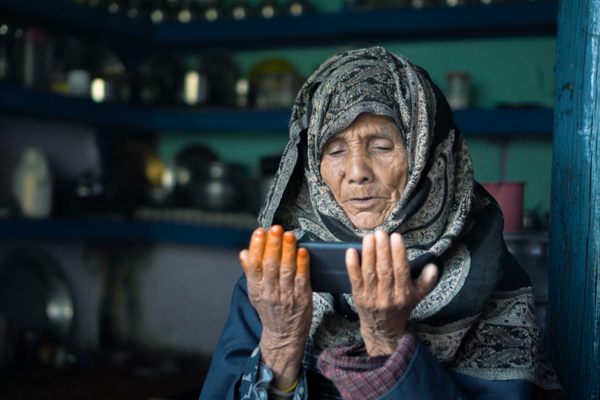













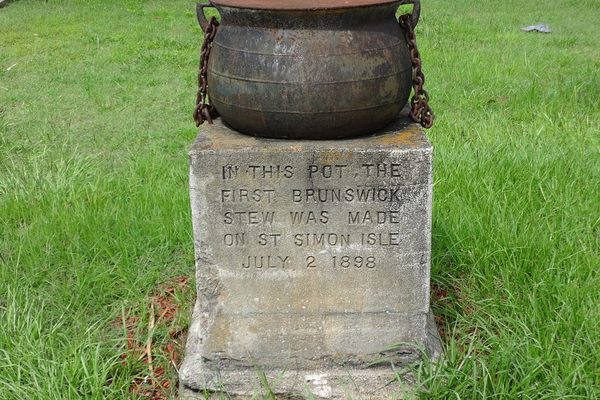



Follow us on Twitter to get the latest on the world's hidden wonders.
Like us on Facebook to get the latest on the world's hidden wonders.
Follow us on Twitter Like us on Facebook